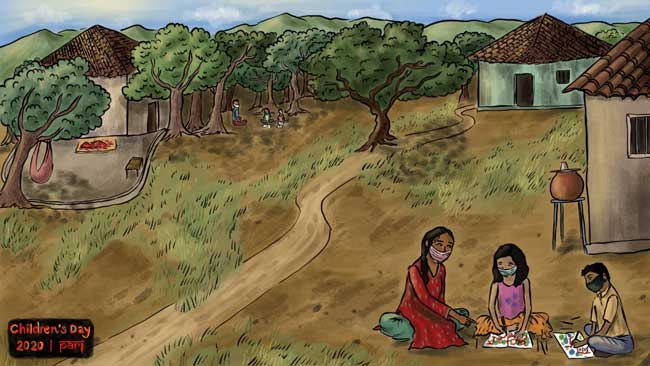2021 Virtual Commemoration
9 August 9:00 a.m. – 11:00 a.m. EDTPermanent Forum on Indigenous Issues will organize a virtual commemoration for speakers to disucss redesigning a new social contract for indigenous peoples, where their own forms of governance and ways of life must be respected and based on their free, prior and informed consent.
Format of the virtual event
The 2021 commemoration of the International Day of the World’s Indigenous Peoples will feature an interactive discussion with two speakers on the distinct elements to be considered when building and redesigning a new social contract for indigenous peoples – where indigenous peoples’ own forms of governance and ways of life must be respected and based on their free, prior and informed consent and genuine and inclusive participation and partnership.
Leaving no one behind
Indigenous peoples and the call for a new social contractThere are over 476 million indigenous peoples living in 90 countries across the world, accounting for 6.2 per cent of the global population. Indigenous peoples are the holders of a vast diversity of unique cultures, traditions, languages and knowledge systems. They have a special relationship with their lands and hold diverse concepts of development based on their own worldviews and priorities.
Although numerous indigenous peoples worldwide are self-governing and some have been successful in establishing autonomy in varying forms, many indigenous peoples still come under the ultimate authority of central governments who exercise control over their lands, territories and resources. Despite that reality, indigenous peoples have demonstrated extraordinary examples of good governance, ranging from the Haudenosaunee to the National Congress of Australia’s First Peoples.
The COVID-19 pandemic has exposed and exacerbated many existing inequalities, disproportionately affecting populations all over the world that were already suffering from poverty, illness, discrimination, institutional instability or financial insecurity. From the perspective of indigenous peoples, the contrast is even starker. In many of our societies, the social contract, at the very least, needs some revision.
Source: International Day of the World’s Indigenous Peoples 9 August
URL: https://www.un.org/en/observances/indigenous-day
Date Visited: 7 July 2021
[Bold typeface added above for emphasis]

Related posts: how India’s tribal communities cope with the pandemic >>
Covering the human cost of Covid-19: The nationwide Covid-19 lockdown that started on March 25 [2020] has triggered distress for millions of ordinary Indians – stranded migrant workers, farmers, sugarcane cutters, Adivasis, Dalits, sanitation workers, construction labourers, cancer patients staying on city pavements, brick kiln labourers, pastoral nomads, and others. While many are on the brink with no work, income or food, several continue to work amid extremely hazardous conditions | Read about them in these PARI reports from across the country >>
Learn more
Articles on Adivasi culture in Folio Special issue
Contents on this website by and about Prof. Ganesh Devy
eBook | Background guide for education
eBooks, eJournals & reports | eLearning
Education and literacy | Right to education
Figures, census and other statistics
Forest Rights Act (FRA) | Nishad (Nishada, Sanskrit Niṣāda, “tribal, hunter, mountaineer, degraded person outcast”) | Vanavasi (Vanvasi, Vanyajati)
Human Rights Commission (posts) | www.nhrc.nic.in (Government of India)
International Day of the World’s Indigenous People
Irish Journal of Anthropology: Special issue on Adivasi identity
Misconceptions | “Casteism” and its effect on tribal communities
Remembering Birsa Munda: The charismatic tribal leader who shook the British Empire – Jharkhand
Scheduled Tribes | Classifications in different states
Tribal groups (Indian tribal communities)
Tribal Politics – adivasi culture, language, and religion in Encyclopedia of India
United Nations Declaration for the Rights of Indigenous Peoples